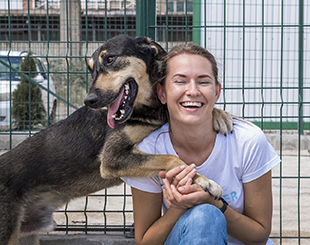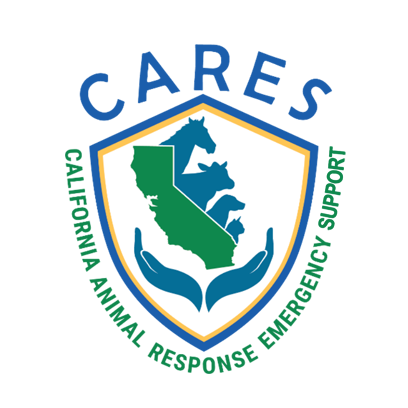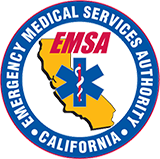California Animal Response Emergency Support
Volunteering in Your Community
During response, the CARES relies on volunteers to staff many critical response and recovery functions for animals in disasters. Local and County governments have jurisdictional authority for overseeing the animals in disaster response and volunteers are urged to work directly with Counties and local government on agreements for emergency response.
Benefits of Volunteering

Volunteering allows you to "Make a Difference" in your community, which is the greatest benefit of volunteering. As a volunteer, you should be aware that:
- When choosing to volunteer consider family preparedness so that your family is safe while you volunteer. Emergency response can be physically and mentally difficult so personal medical conditions should be evaluated prior to volunteering.
- Volunteers deployed will be registered in their local county as Disaster Service Workers (DSW), a program that provides liability and workers compensation protections. The DSW program is typically maintained by the county or local government, often by police or fire agencies.
- Every attempt will be made to match the volunteer's skills, competencies and license or registration level with the assigned responsibilities during an emergency or disaster. There may be times when a volunteer may be asked to assist with activities that are not equivalent with a person's normal work duties or expectations.
Volunteer Opportunities
Volunteers are a valuable resource that helps to increase the resiliency of local communities and States, making them less dependent on Federal resources.
One of the great ironies of life is this: He or she who serves almost always benefits more than he or she who is served.
Below are links to organizations that you can volunteer with.
Volunteer Animal Response Teams
Animal Response Teams are typically 501(c)3 non-profit organizations. They are known by various names but are more well known as Community Animal Response Team (CART). All have a common purpose, which is to mitigate the loss of human and animal life by assisting emergency response agencies with animal evacuation, emergency sheltering, search and rescue and animal reunification during disasters. These volunteers continuously train to provide the most efficient service to animals in disasters and their owners.
To Volunteer with an Animal Response Team, click to find the respective link in your county or community and register.
California Veterinary Emergency Team (CVET)
The California Veterinary Emergency Team (CVET) is a state-wide animal response asset focused on providing veterinary care to animals in disasters wherever they strike in California. Per a memorandum of understanding with the California Office of Emergency Services (Cal OES) and the California Department of Food and Agriculture (CDFA), CVET will be leading collaborative efforts in coordination with local resources to provide veterinary care during disasters. CVET responders receive training in the incident command system (ICS), all hazards safety, and CVET operations. The CVET also plans to offer numerous specialized training opportunities including shelter-in-place support, technical animal rescue, working dog support and many others.
If you are a veterinary professional and would like to learn more about joining CVET as a responder, please contact us.
Laws and Guidelines Relevant to Volunteers
Some Laws and Guidelines that apply to volunteering in disasters include the following:

Local/State Resources
Animal Owner Resources
Follow Us
Contact Us
Animal Health Branch
Sacramento, California 95814
916-900-5002
Fax: 916-900-5333
CDFA.AHB_Cares_Program@cdfa.ca.gov








